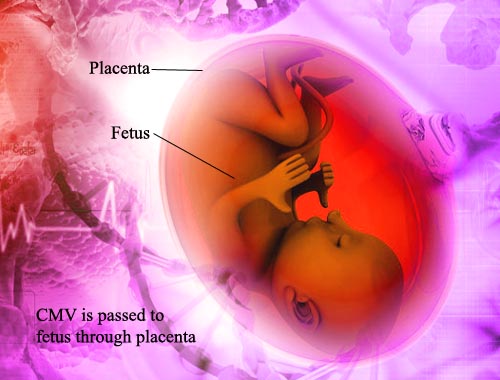Cytomegalovirus infection (CMV)
Cytomegalovirus (CMV) is a virus found around the world. It is related to the viruses that cause chickenpox and infectious mononucleosis (mono). From 50% to 80% of adults in the US have had a CMV infection by age 40. Once CMV is in a person's body, it stays there for life. Most people with CMV don't get sick. But infection with the virus can be very serious in babies and people with weak immune systems. If a woman gets CMV when she is pregnant, she can pass it on to her baby. CMV does not harm most babies. But some develop lifelong disabilities. CMV is spread through close contact with body fluids. You should use good hygiene, including proper hand washing, to avoid catching or spreading the virus. Most people with CMV don't require treatment. If you have a weakened immune system, your doctor may prescribe antiviral medicine. In immunocompromised individuals (patients with AIDS and transplant recipients), disease manifests with fever, bone marrow suppression, and tissue-invasive disease such as pneumonia, hepatitis, colitis, nephritis, and retinitis. In an immunologically-naive fetus, CMV infection may lead to cytomegalic inclusion disease, characterized by severe neurologic abnormalities, mental retardation, and hearing defects. In patients with compromised immune function, the treatment of choice is intravenous ganciclovir or oral valganciclovir. Intraocular administration of ganciclovir, and less commonly fomivirsen, is also used in CMV retinitis. Intravenous foscarnet and cidofovir are less preferred agents.
